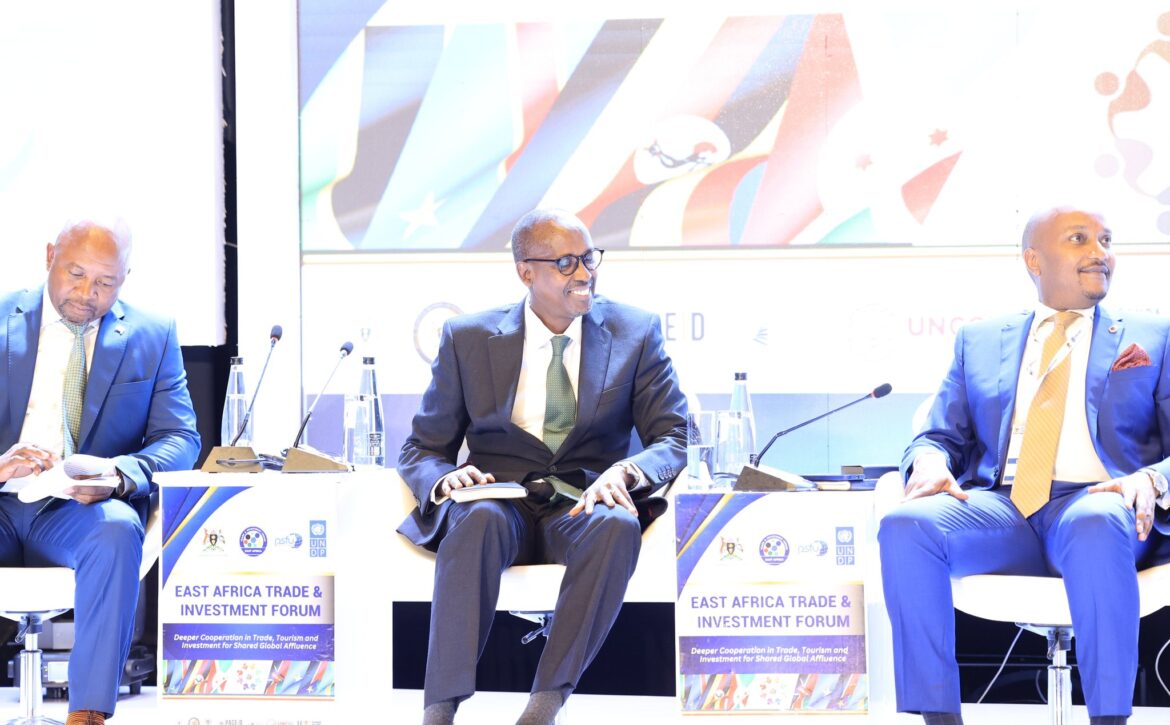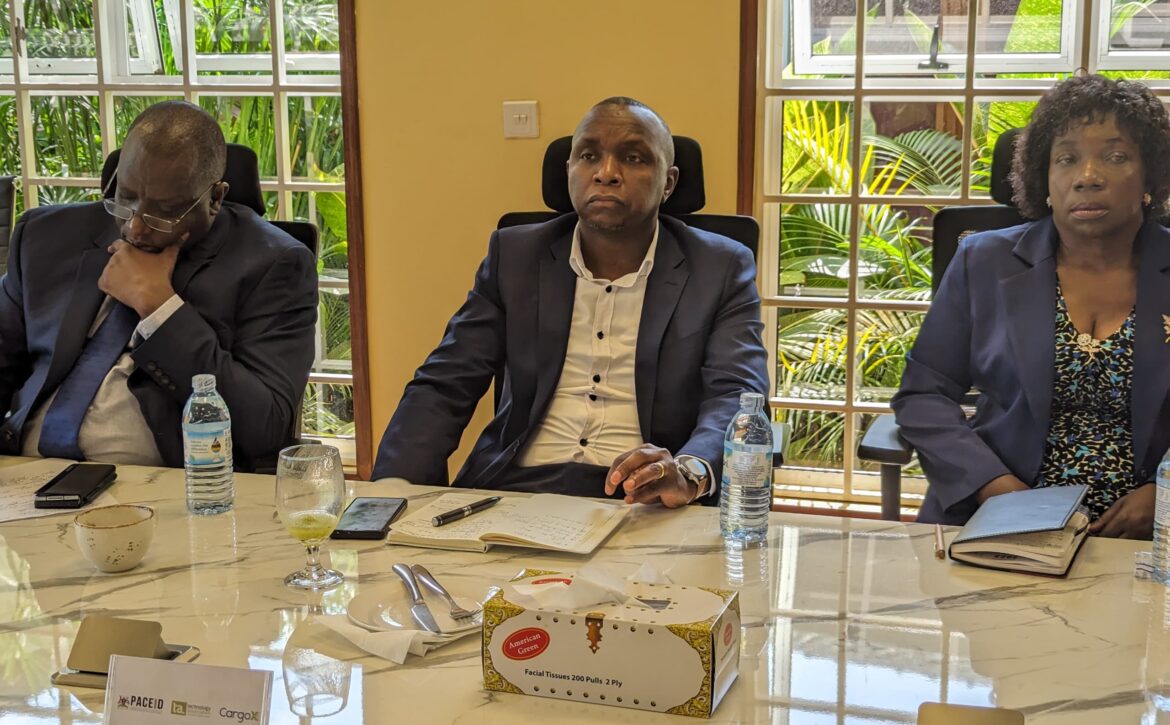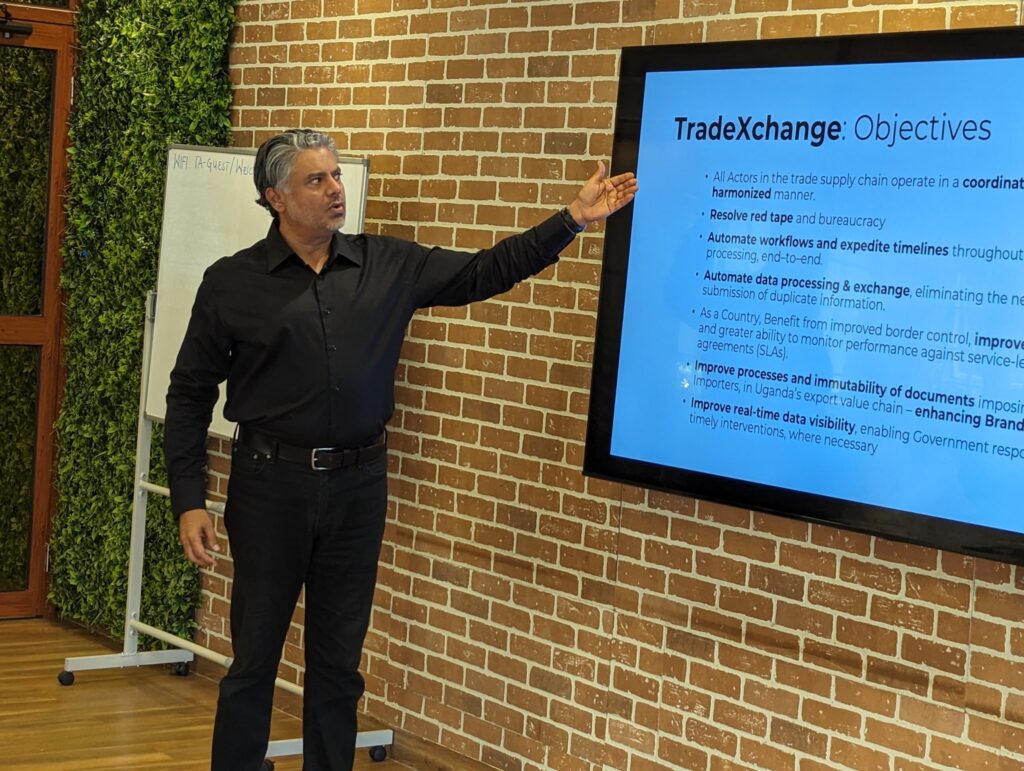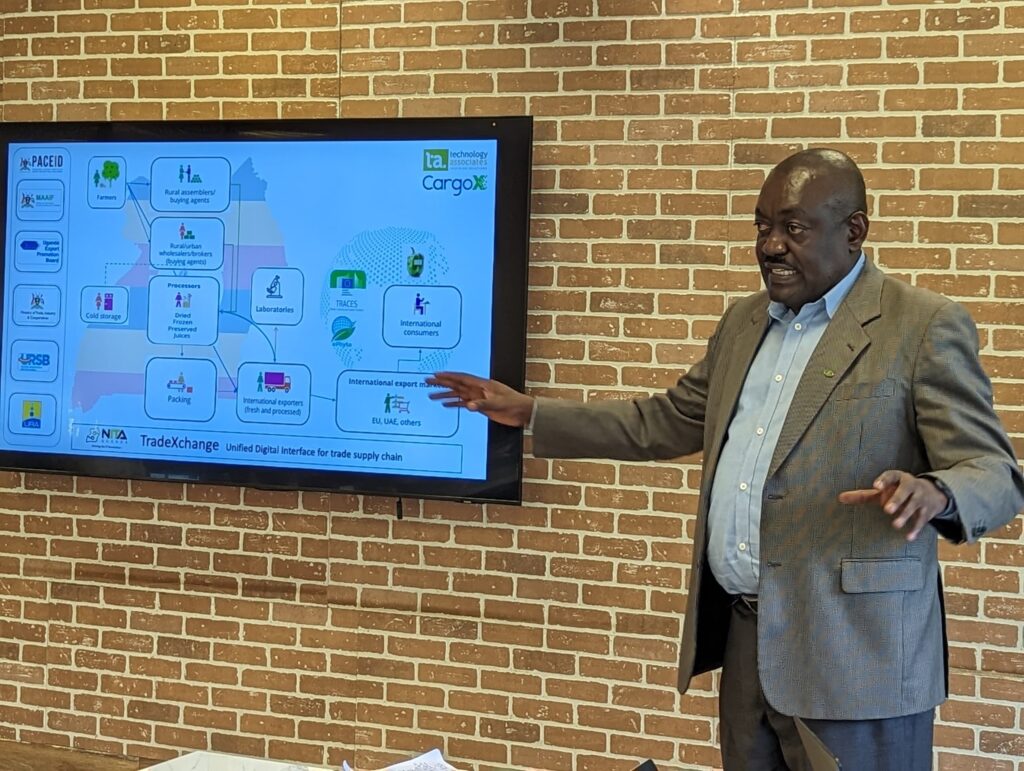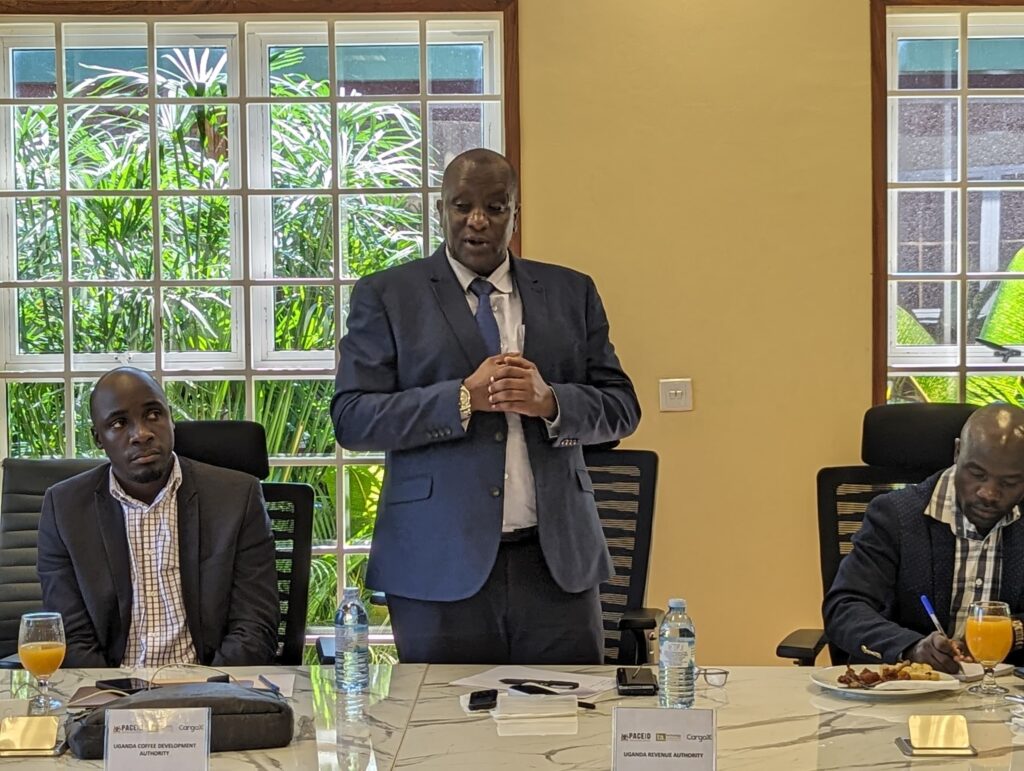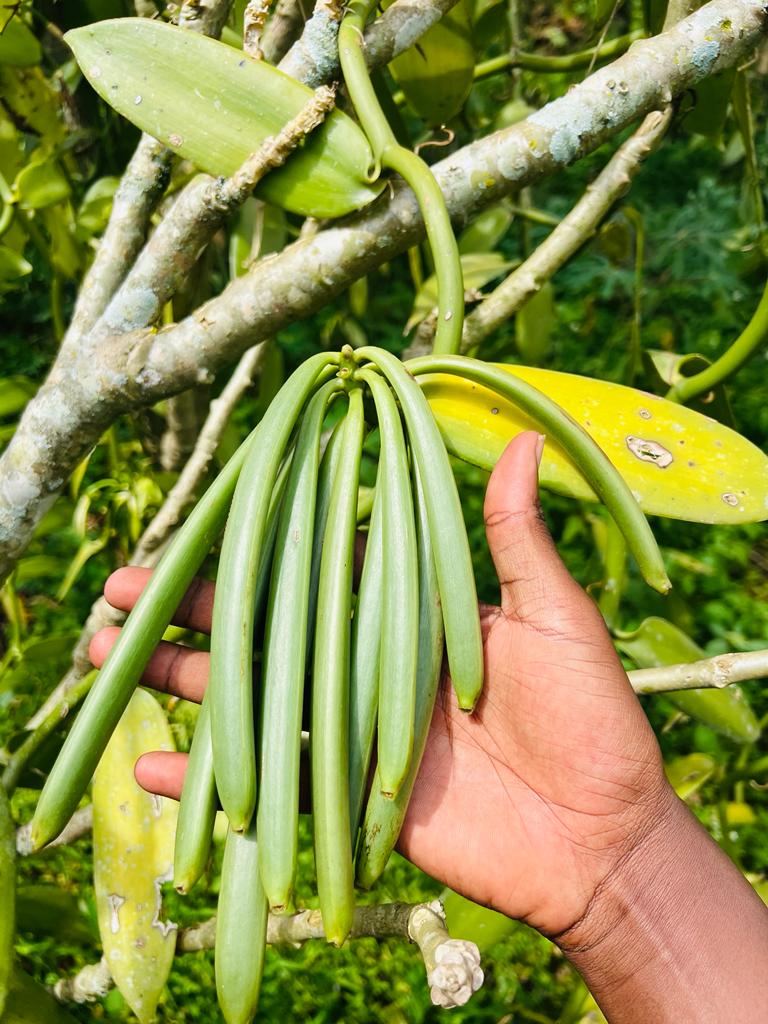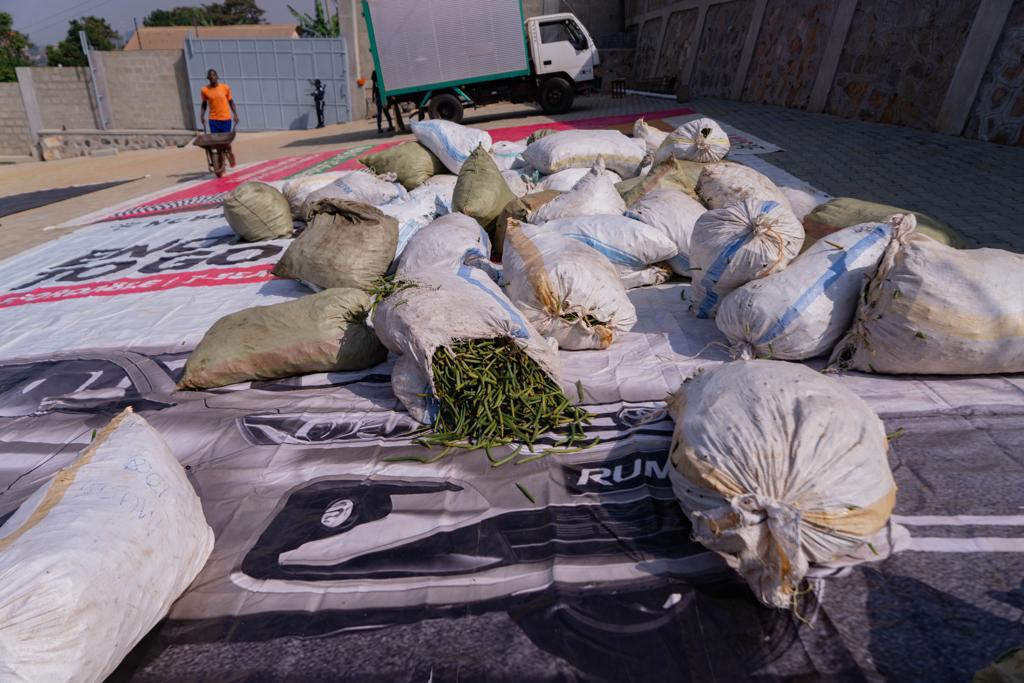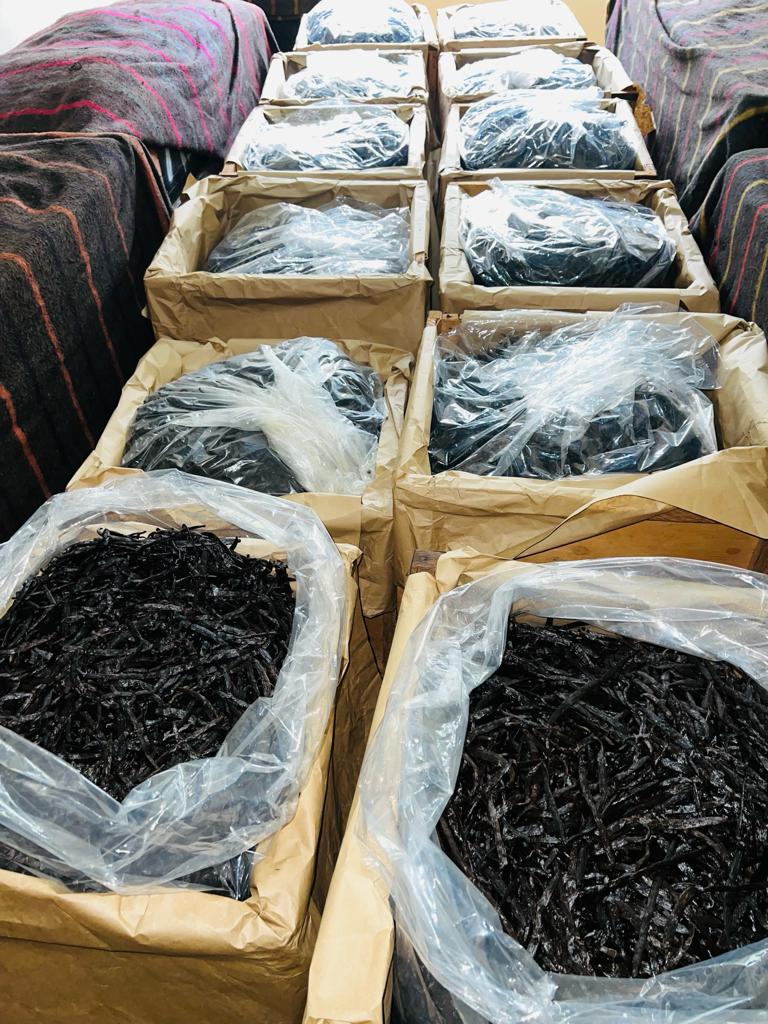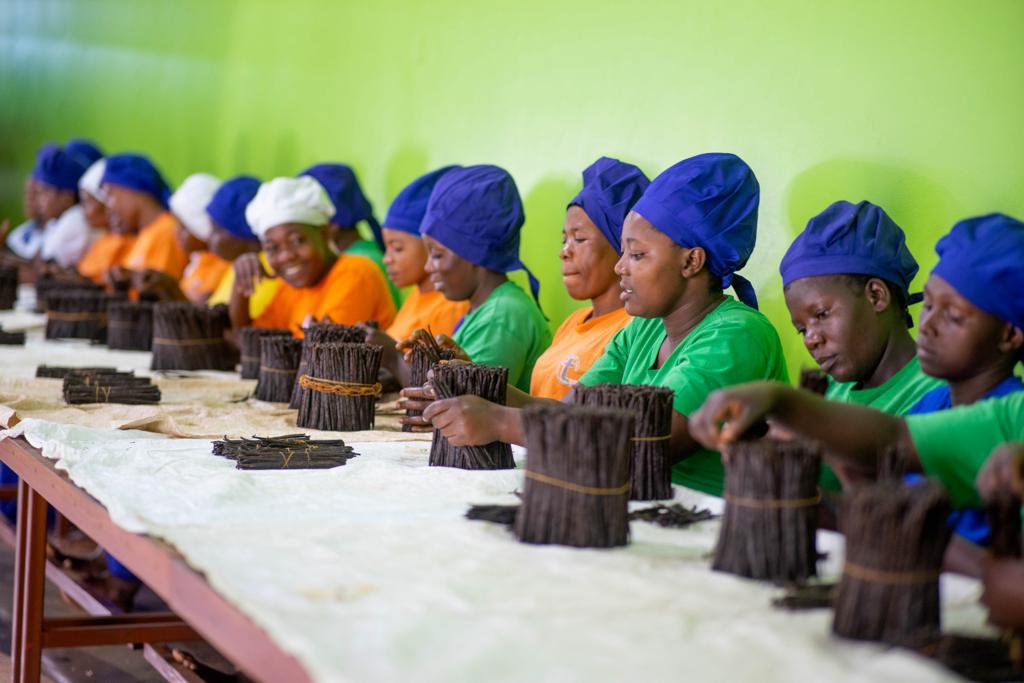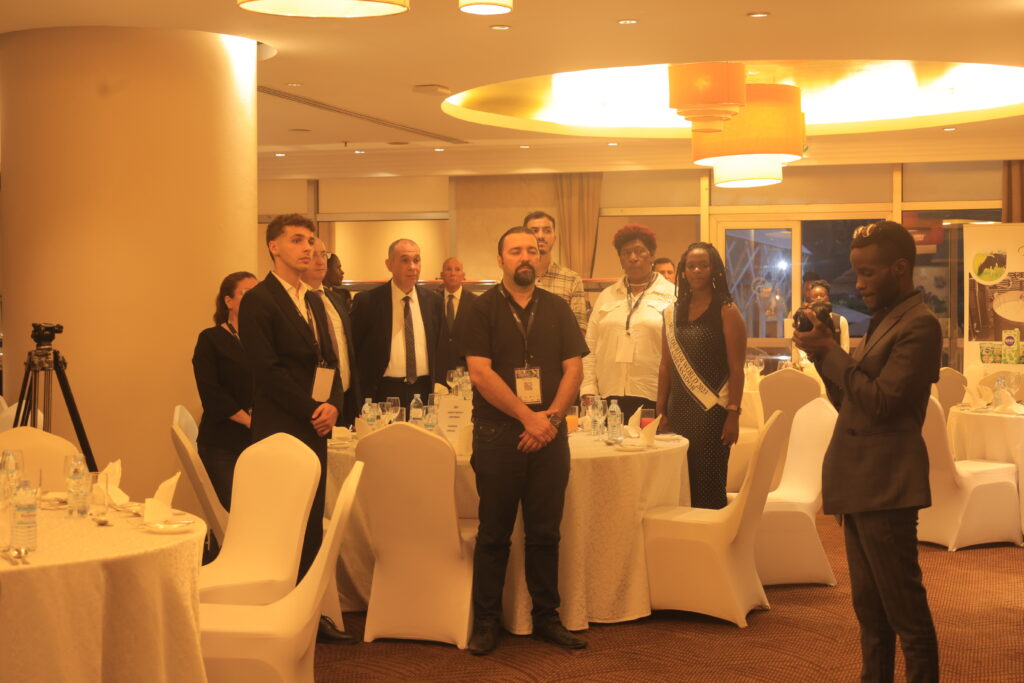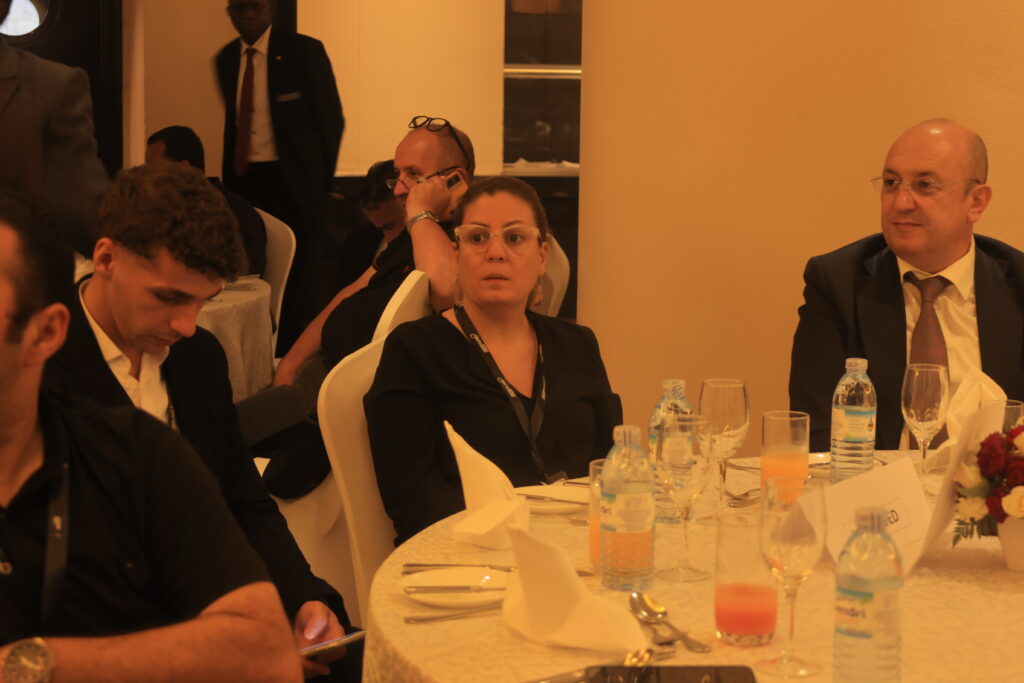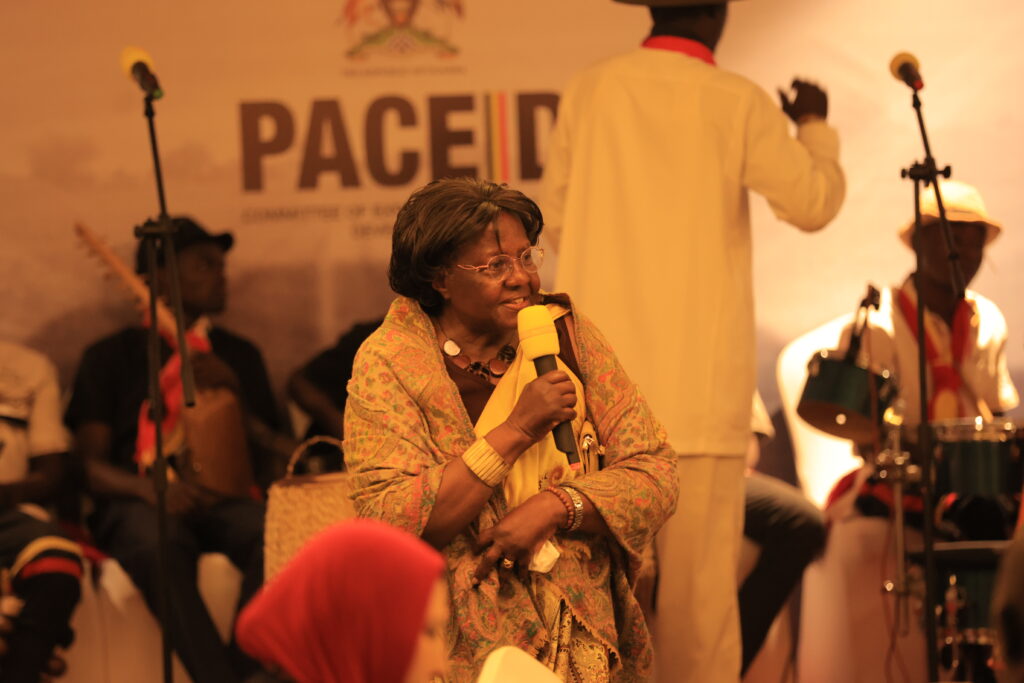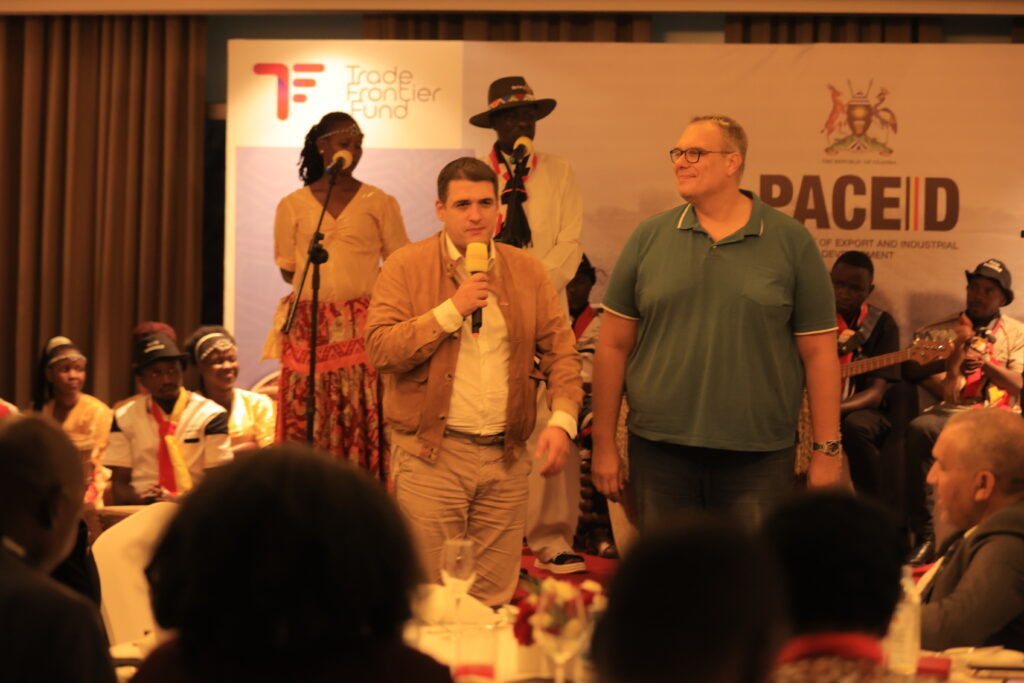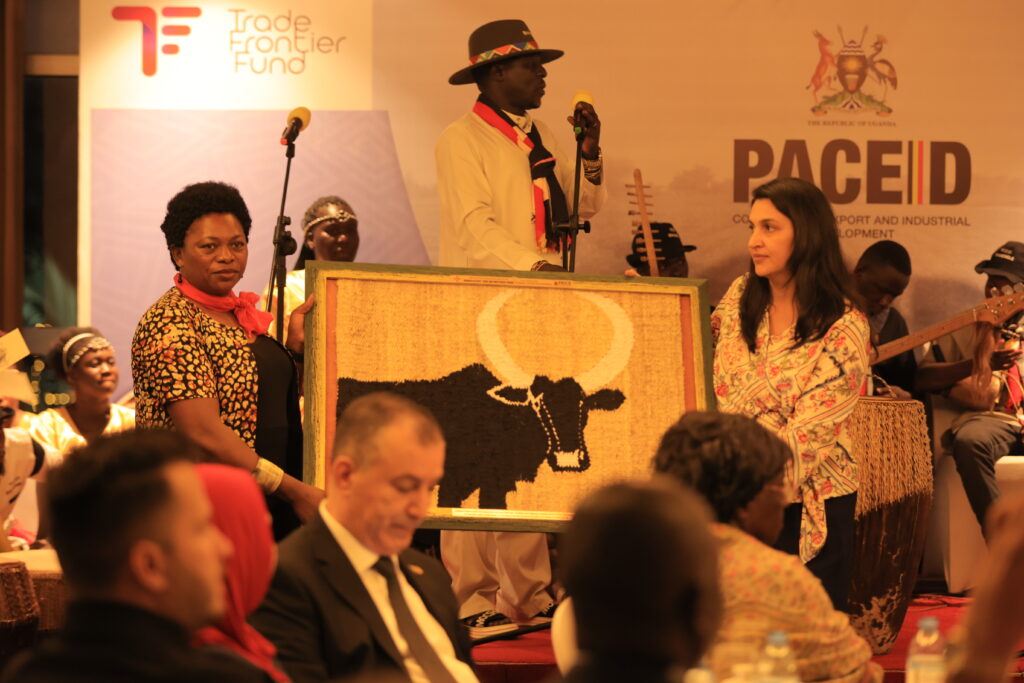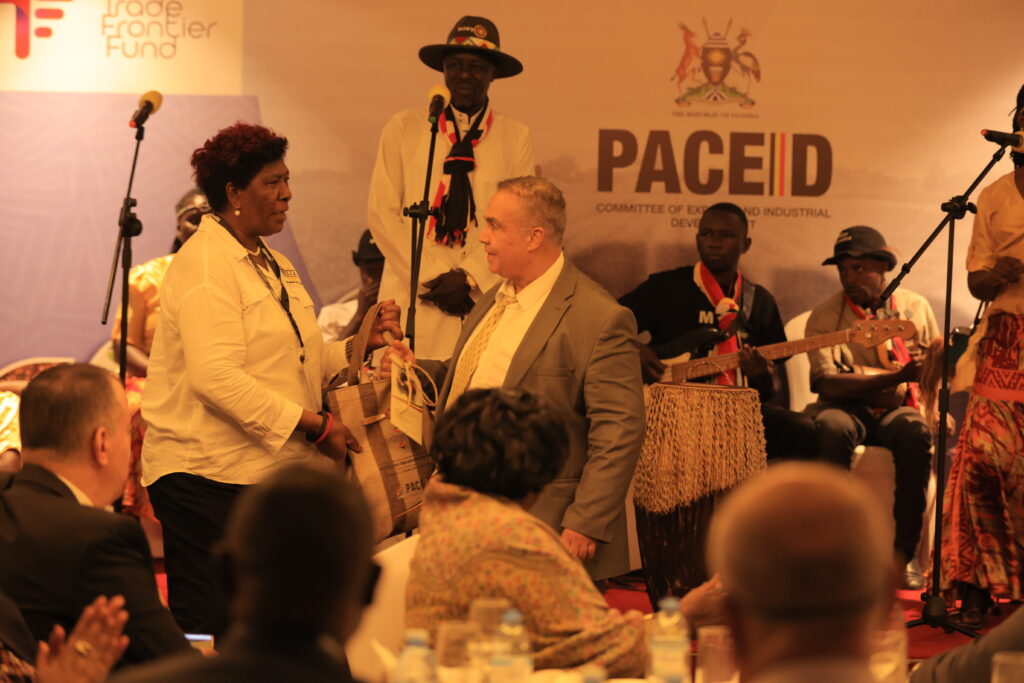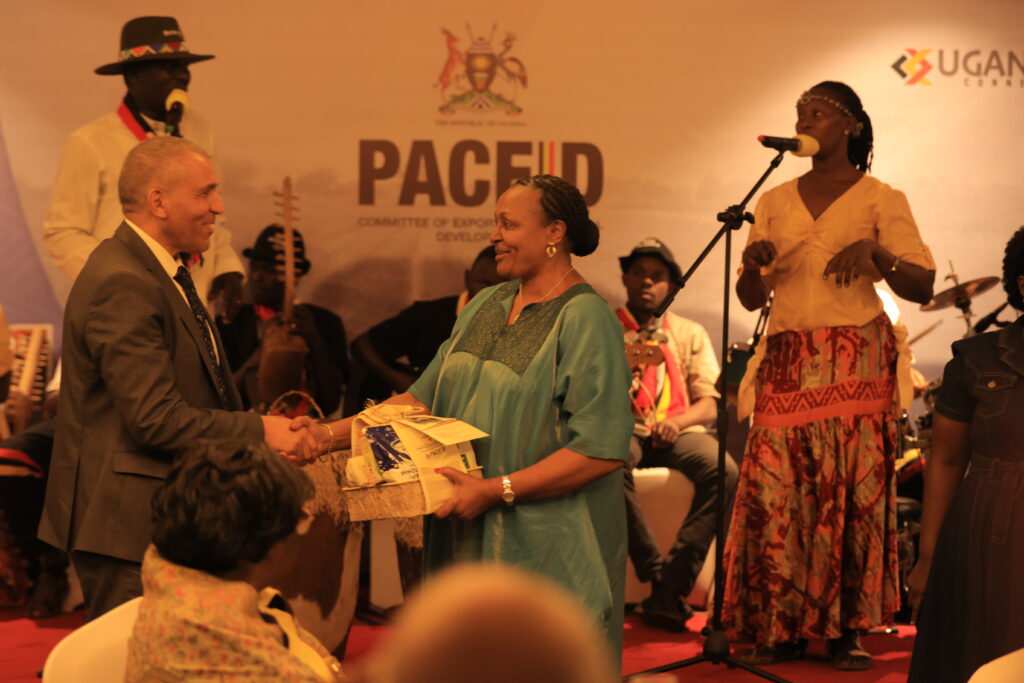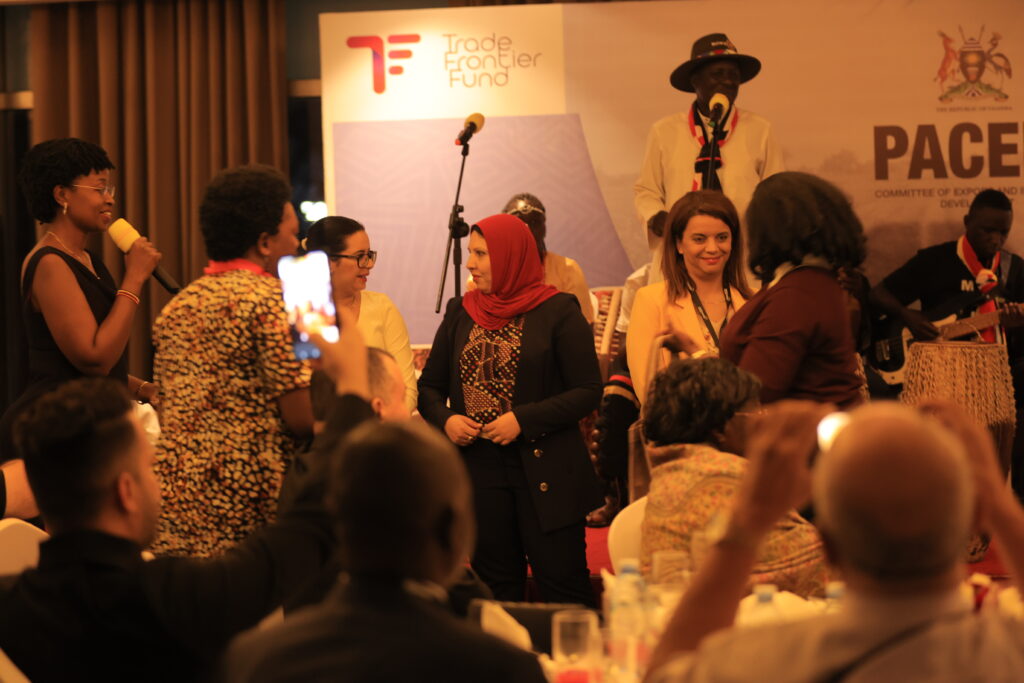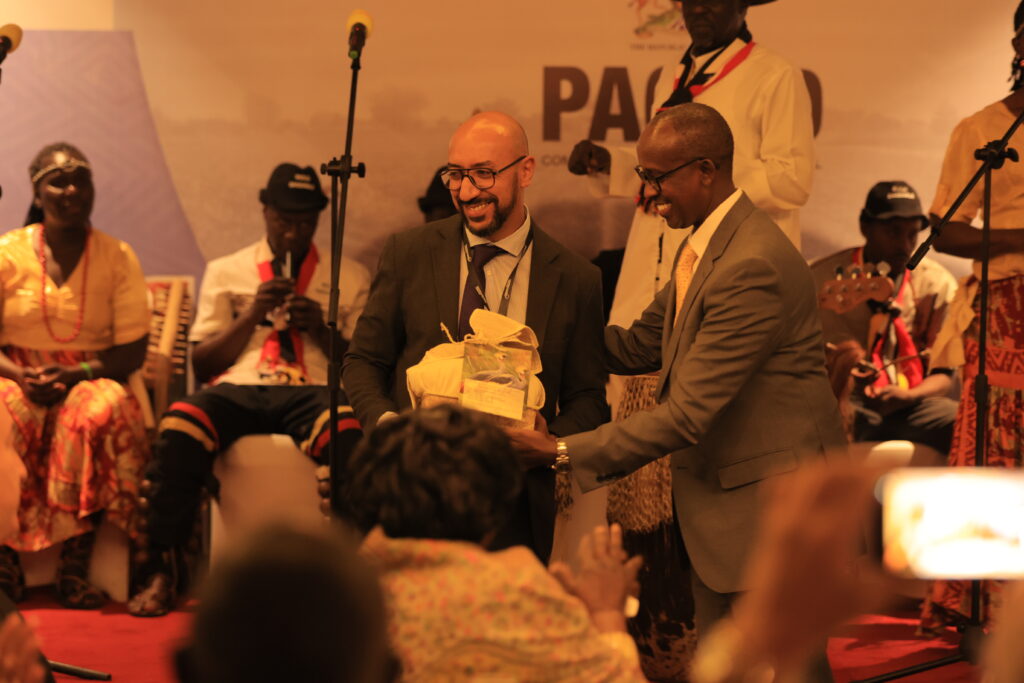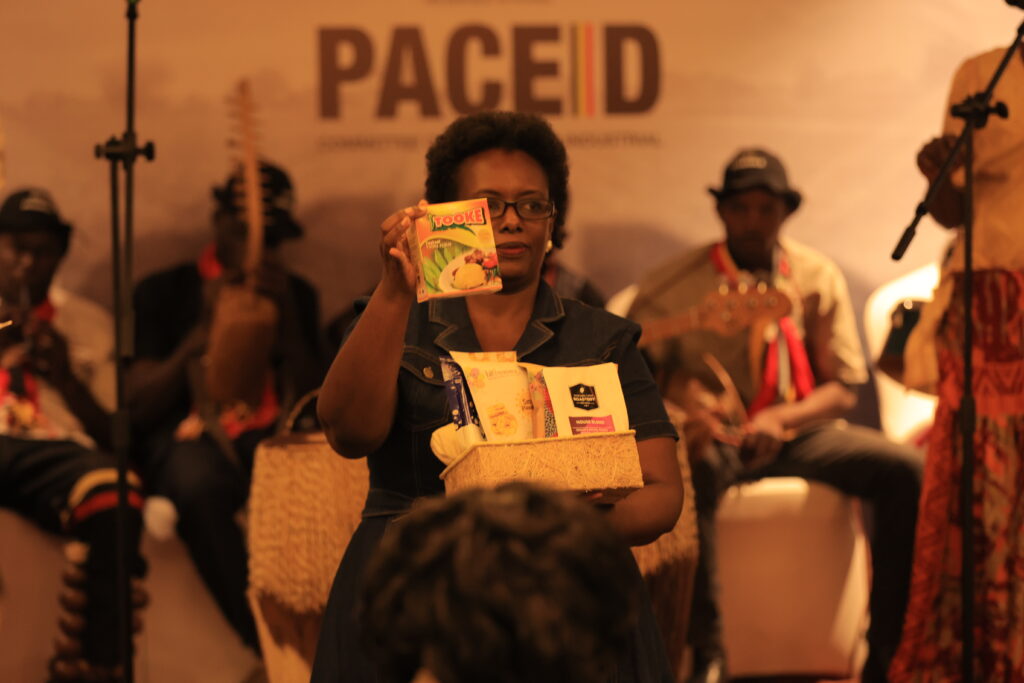Rwabwogo calls for export-driven economies at East Africa Trade and Investment Forum
The Chairman of the Presidential Advisory Committee on Exports and Industrial Development (PACEID) Odrek Rwabwogo has rallied East Africans to adopt export-driven economies for regional transformation.
Rwabwogo, who doubles as the Senior Presidential Advisor-Special Duties, made the remarks at the third and final day of the three-days East African Trade and Investment Summit at the Kampala Serena Hotel on Wednesday, January 27, 2024.

He was part of panel discussing how to grow regional economies at the high-profile summit that was organized on the sidelines of the 19th Non-Aligned Movement (NAM) and the 3rd South Summit (G77). He shared stage with Humphrey Nzeyi- Chairman of Private Sector Foundation Uganda, MTN Uganda CEO Sylivia Mulinge, Kudakwashe Matereke-Regional Chief Operating Officer of AFREXIM Bank and Dr. Thangvel Palnivel from United Nations Development Programme (UNDP Uganda).
Alongside the panel discussion was a Business-to-Business meeting between Afroexim Bank, DTB, National Housing, Centenary Bank discussing the Packages they can offer to the private sector.
Rwabwogo shed light on PACEID’s interventions and their role in helping Uganda achieve its ambitious $6 billion target in export earnings by 2028. He highlighted the PACEID’s focus on four key areas: market research, standards and compliance, export infrastructure, and export financing. These initiatives aim to address the main challenges faced by exporters and improve the overall competitiveness of Ugandan products in international markets. “By understanding market trends and consumer preferences, exporters can align their products to meet international standards and target niche markets, ultimately boosting export earnings.”
Rwabwogo stated that these reforms will allow our government to re-align the thinking and help to strengthen the productive capabilities of our businesses.
“PACEID has invested in a team of researchers to inform our strategy, planning and decisions. Collaboration with Private and Public sector stakeholders in Uganda trade and investment is essential.” Rwabwogo noted while urging all stakeholders to exercise agency and drive forward the excellent and transformative trade and investment ideas discussed at the Summit.
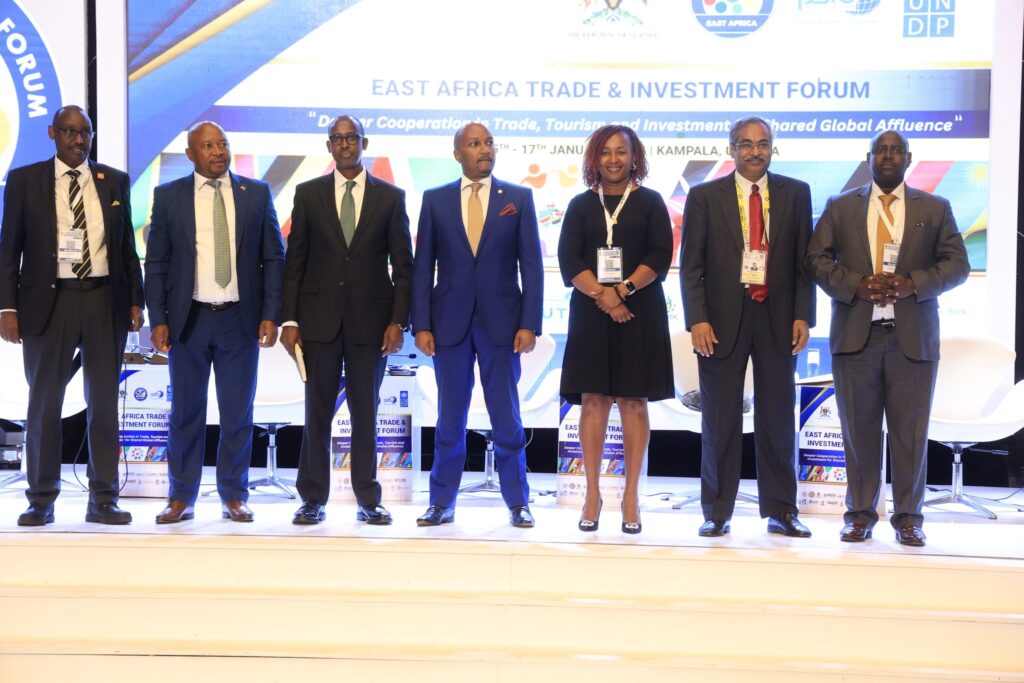
The rest of the panelists discussed various aspects of trade and investment, including regional integration, market access, investment promotion, and trade facilitation.
John Bosco Kalisa emphasized the need for harmonized trade policies, streamlined regulations, and enhanced infrastructure to facilitate seamless trade flows among member states.
The discussions also delved into specific sectors that offer significant potential for trade and investment in East Africa. Agriculture, manufacturing, and services were highlighted as areas where there are ample opportunities for growth and development.

The East Africa Trade and Investment Forum provided a platform for policymakers, business leaders, and investors to exchange ideas and explore potential partnerships.
Held under theme “Deepening Cooperation in Trade, Tourism and Investment for Shared Global Affluence”, the forum started on 15th January 2024 and was officiated by the 1st Deputy Prime Minister and the Minister of East African Affairs Rt Hon. Rebecca Alitwala Kadaga and was officially opened by the Vice President Her Excellency Jesca Alupo on Tuesday 16th January 2024. The forum was been attended by over 500 delegates from 19 countries; Uganda, Qatar, United Kingdom (UK), Türkiye, Kenya, Egypt, Algeria, India, Cuba, China, South Africa, South Sudan, Italy, Tanzania, Ethiopia, Zambia, Saudi Arabia, Bulgaria and Morocco.

The forum was also addressed by the EAC Deputy Secretary General – Customs, Trade and Monetary Affairs Ms. Annette Ssemuwemba Mutaawe. She underscored the EAC policies on ensuring that the EAC is an attractive destination for trade and investment. Such include the Customs Union and Common Market with no tariffs and harmonized rules of origin, cost, and time of doing business in EAC which is reduced with 13 One Stop Border Point (OSBP), and there is common infrastructure to process goods in customs. She committed that the EAC secretariate is ready and capable to facilitate trade within the community.
Rt. Hon. PM, Amb. Jan Sadek the Head of EU Delegation in Uganda also highlighted the positive trade balance that Uganda has maintained and a top recipient of FDI with a lot of potential for business in the country. He pledged EU – EAC partnership in investment and trade based on the existing bilateral agreements and invited investors to the EU Business Summit which is due this year.

While closing the forum, Humphrey Nzeyi noted that there is urgent need to;
- Scale-up cross-country investments in connectivity and high-quality infrastructure across the region both physical and digital connectivity.
- Invest in Bwindi and Mgahinga tourism infrastructure especially tourism roads, airports, and internal flights by Uganda Airlines. Data shows that money invested in such strategic infrastructure can be recovered in a period of less than 3 years.
- Build the capacity of Small and Medium-sized Enterprises (SMEs) to harness the potential of the AfCFTA. Strengthening the competitiveness and export readiness of SMEs in regional value chains through trade financing and business development services is crucial.
- Strengthen regional cooperation to eliminate the persistent trade barriers.
- Invest in cross boarder infrastructure such as roads, cargo airlines and railways to facilitate trade.
The 1st East Africa Trade and Investment Forum was organized by the Government of Uganda through the Ministries of Trade Industry and Cooperatives and Foreign Affairs, PSFU, UNDP Uganda, Stanbic Bank, National Housing and Construction Company, NSSF, Banana Industrial Research and Innovation and NEC-Streit – Armoured Vehicles among many others.


